Swimming pool covers provide numerous benefits that make them a must-have for pool owners. They are a means of placing a barrier between the surface of your swimming pool and the outside environment. Don’t be fooled into thinking that means you only need them with an outdoor pool, they are extremely useful for all types of pool and offer a range of benefits.
At Hydrocare, we’re proud to install swimming pool covers on pools across Sussex.
The main types of swimming pool cover we install are:
- Winter debris cover
- Solar pool covers
- Slatted covers
- Venetian covers
- Pool safety covers
- Rolling deck covers
- Moving floor covers
- Automatic pool covers
- Manual pool covers
View our range of pool covers online and give us a call on 01444 236578 to discuss your swimming pool and the best swimming pool cover to suit your needs. We have a range of solutions available for any pool type, whether an in-ground pool, above-ground pool, or even a hot tub.
Types of swimming pool cover
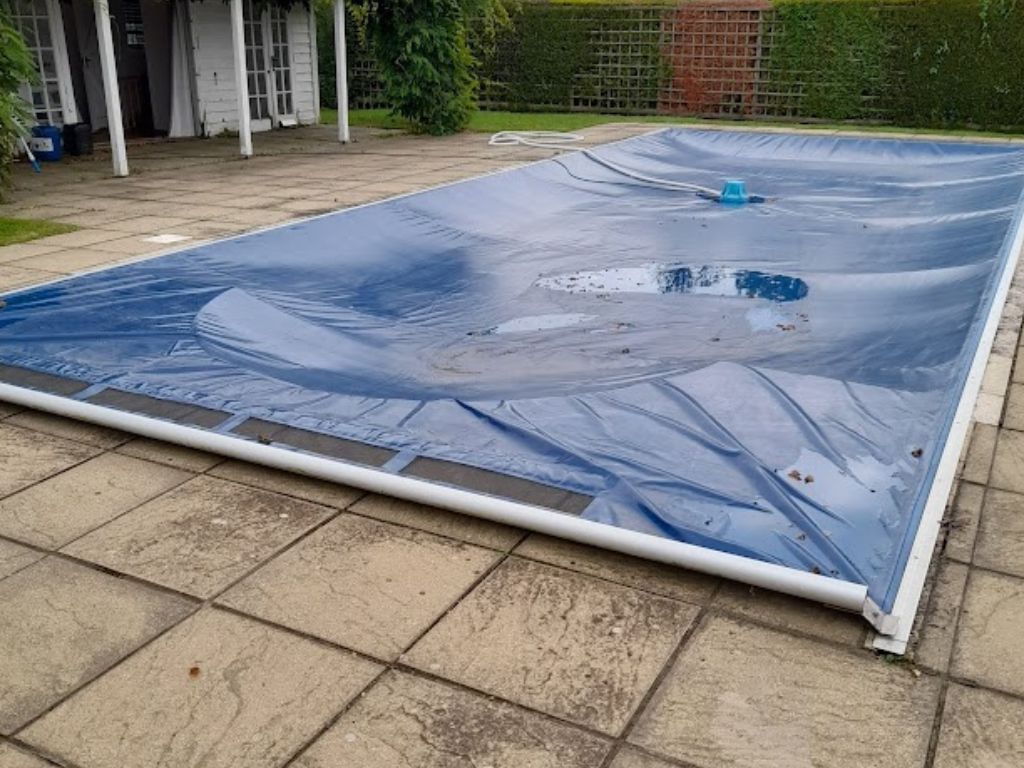
Winter debris covers
Winter pool covers are the simplest type of swimming pool cover. They consist of a mesh that allows rainwater through but prevents leaves and similar debris from entering the pool. Winter covers are typically installed as part of the decommissioning process in the winter and removed when the pool is recommissioned in the summer.
Solar covers
Solar covers are the simplest year-round cover and consist of two layers of flexible plastic sheeting with air bubbles between them. They are generally the cheapest option but are often manually operated (i.e., you have to remove and replace them by hand) and have the shortest lifespan.
A swimming pool solar cover allows sunlight to pass through it on a sunny day, increasing the pool water temperature, which in turn benefits heating costs.
They are not safety covers as they float on top of the pool and cannot be counted on to keep children or pets safe when the pool is unattended.
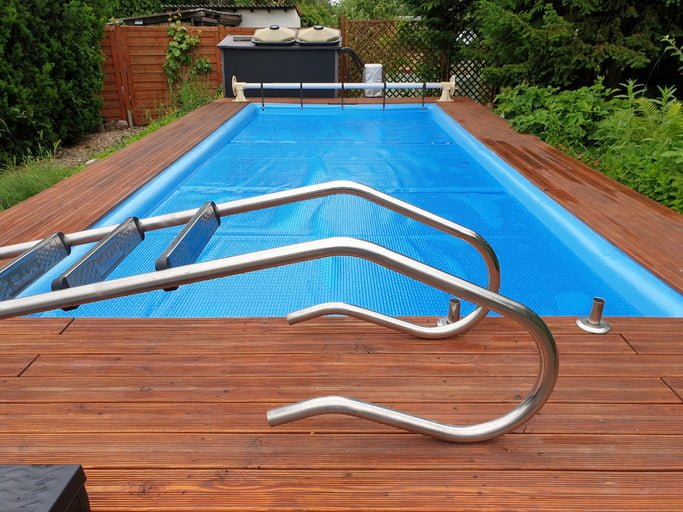
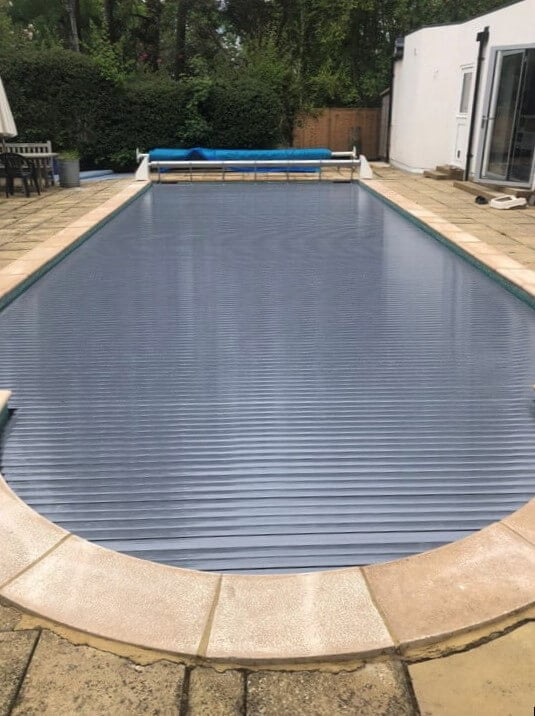
Slatted / Venetian covers
A slatted cover typically has a rigid slat construction. Similar to the solar swimming pool cover, they float on top of the pool. The slats themselves may be made of uPVC or polycarbonate and are interlocked so that they are flexible in one direction (usually across the length of the pool) whilst being rigid in the other. As a result of this rigidity, they are deployed and retracted via swimming pool rollers at one end, either manually or automatically.
Polycarbonate covers typically have more durability and a longer lifespan than uPVC, but as the raw materials are up to 25% more expensive, they are a more expensive option. Manual and automatic slatted pool covers can accommodate shaped pool ends.
While some solar heating of the water will occur, it is not a sealed barrier, and so losses through evaporation will at least partly offset this.
However, whilst they are more robust than solar covers, they are not safety covers and cannot be counted on to keep children or pets safe when the pool is unattended.
Safety covers
Swimming pool safety covers are designed to withstand an adult or child falling onto them, making them a good choice for families and pet owners. They are typically made of heavy-duty vinyl and may be supported with bars or runners along the side of the pool. Safety covers can be manual or automatic and can be deployed via a roller.
Unlike solar or slatted covers, they provide a complete barrier between the pool water and the environment, so in addition to their safety properties, they also provide a superior reduction in evaporation. However, this also means that they fully block out sunlight, which means that there is far less warming of the water from the sun whilst the pool is not in use.
The nature of a safety cover means that it completely isolates the pool from the elements in a way that solar covers or slatted covers cannot.
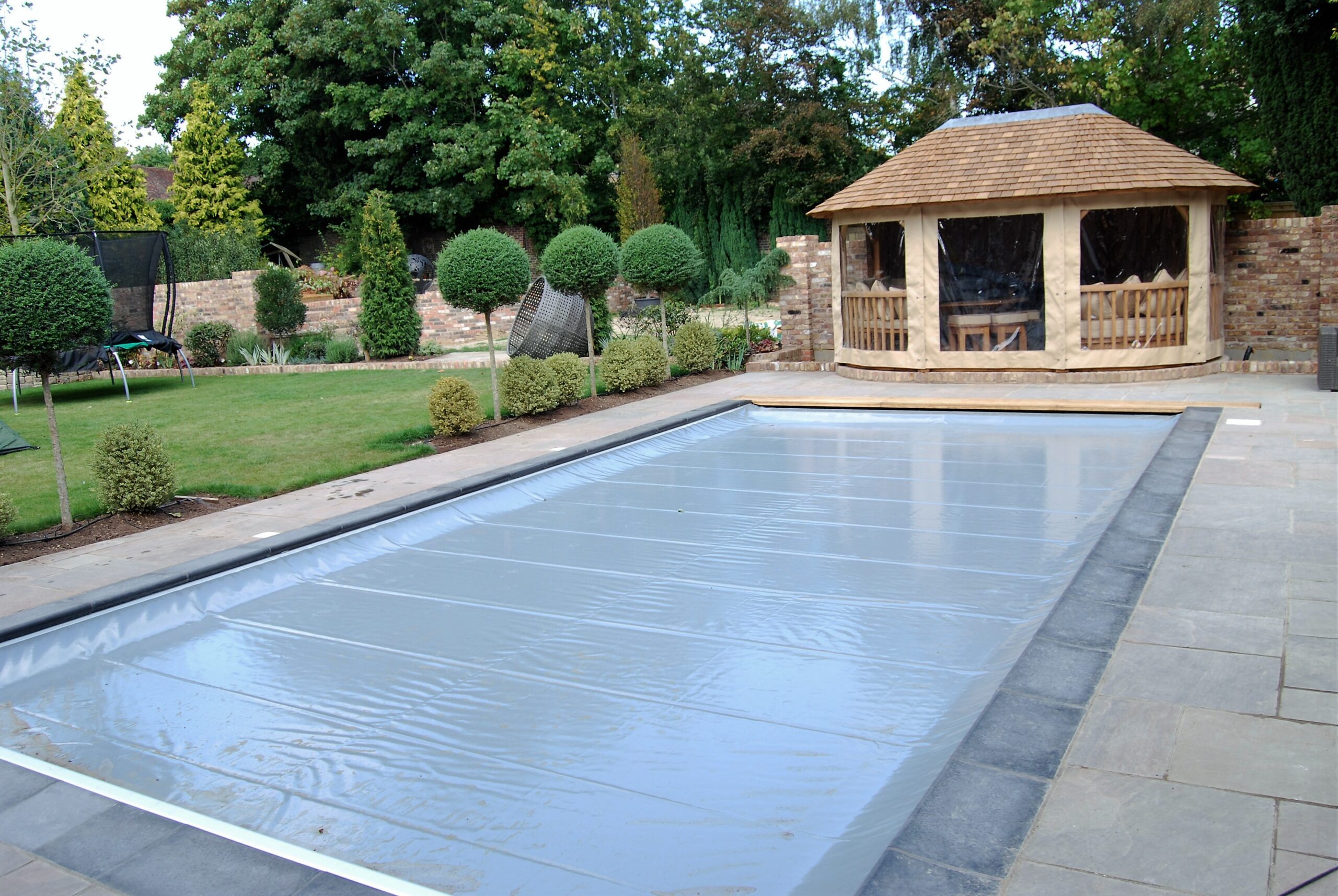
Pool Cover Gallery
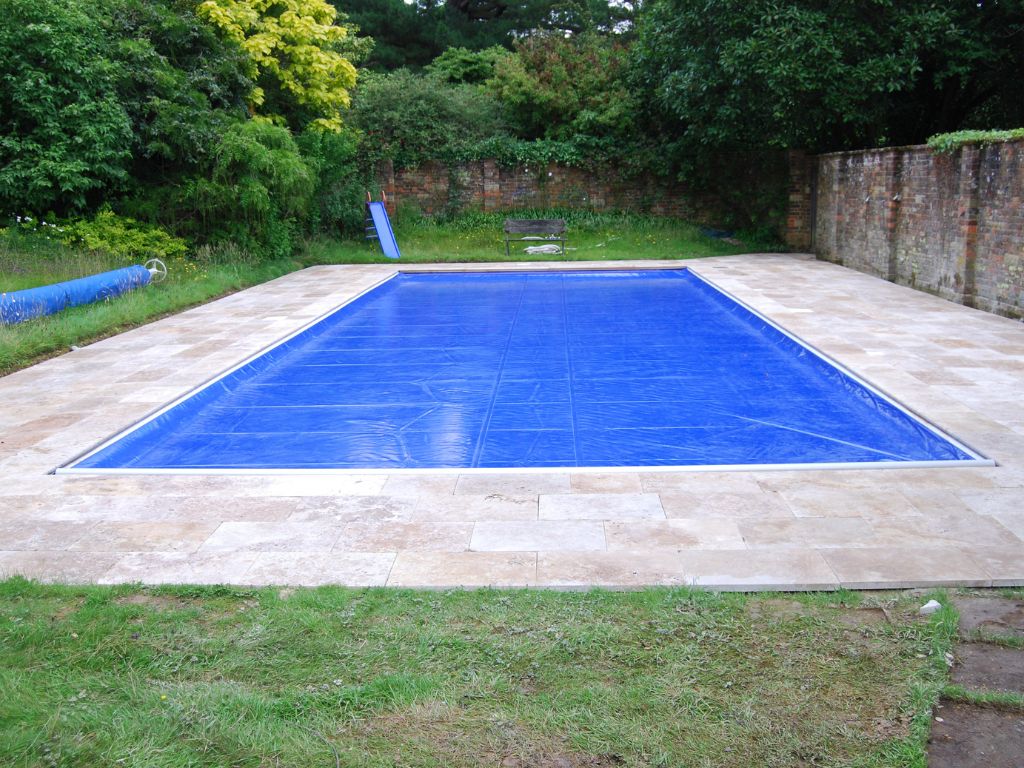
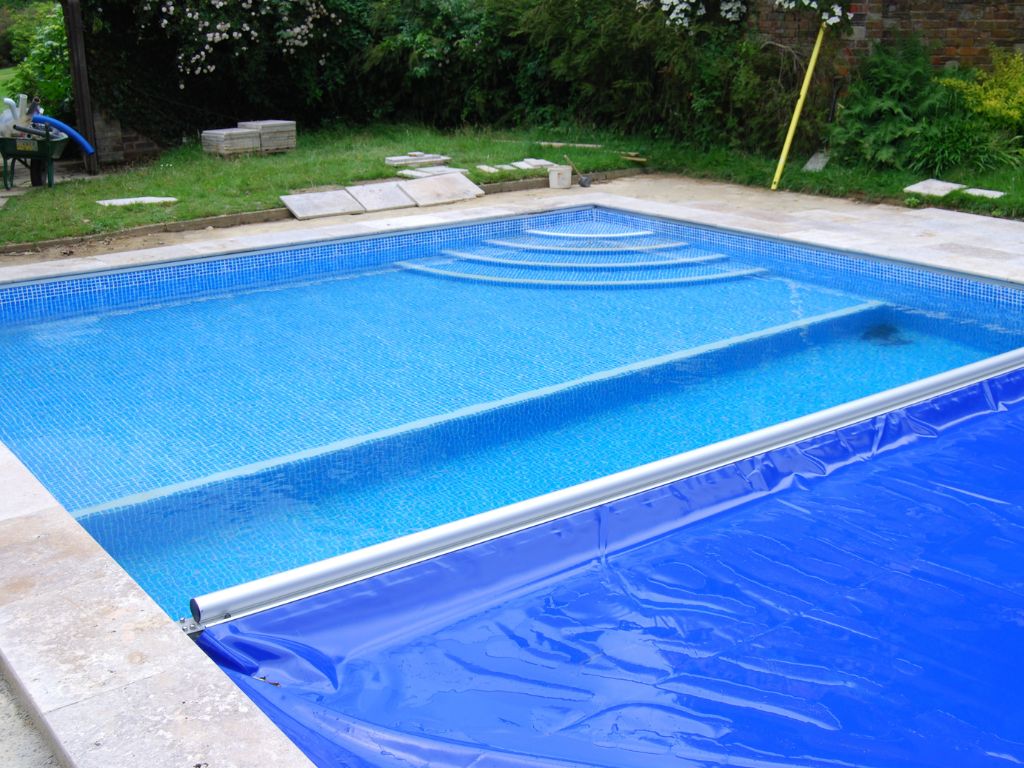
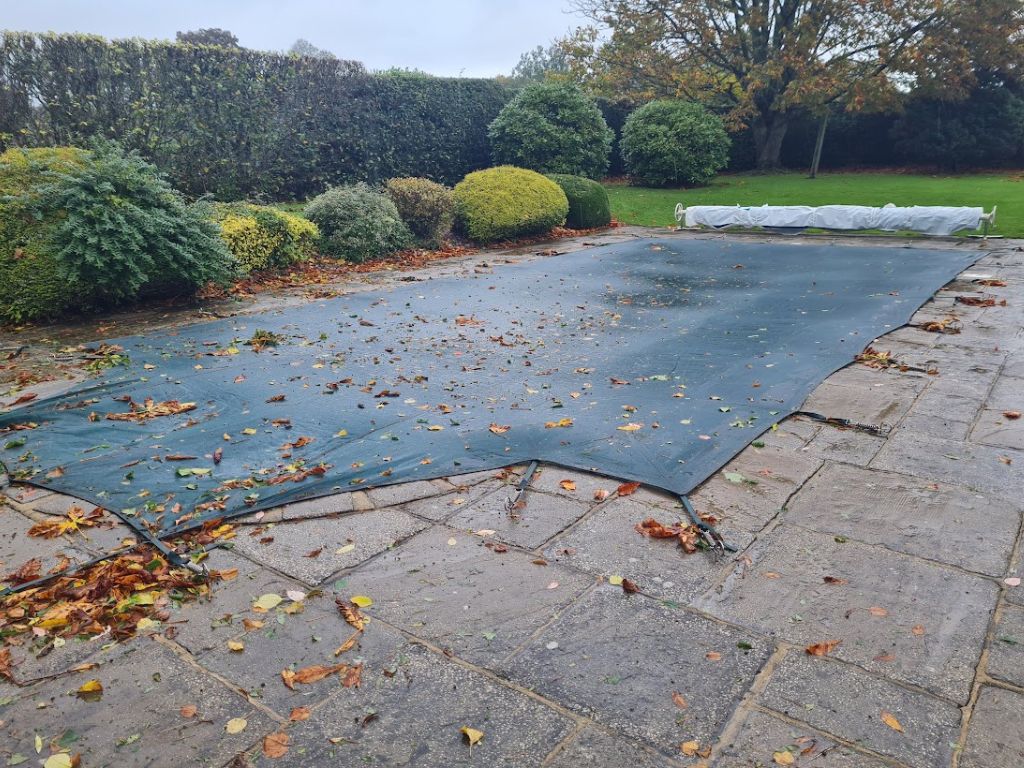
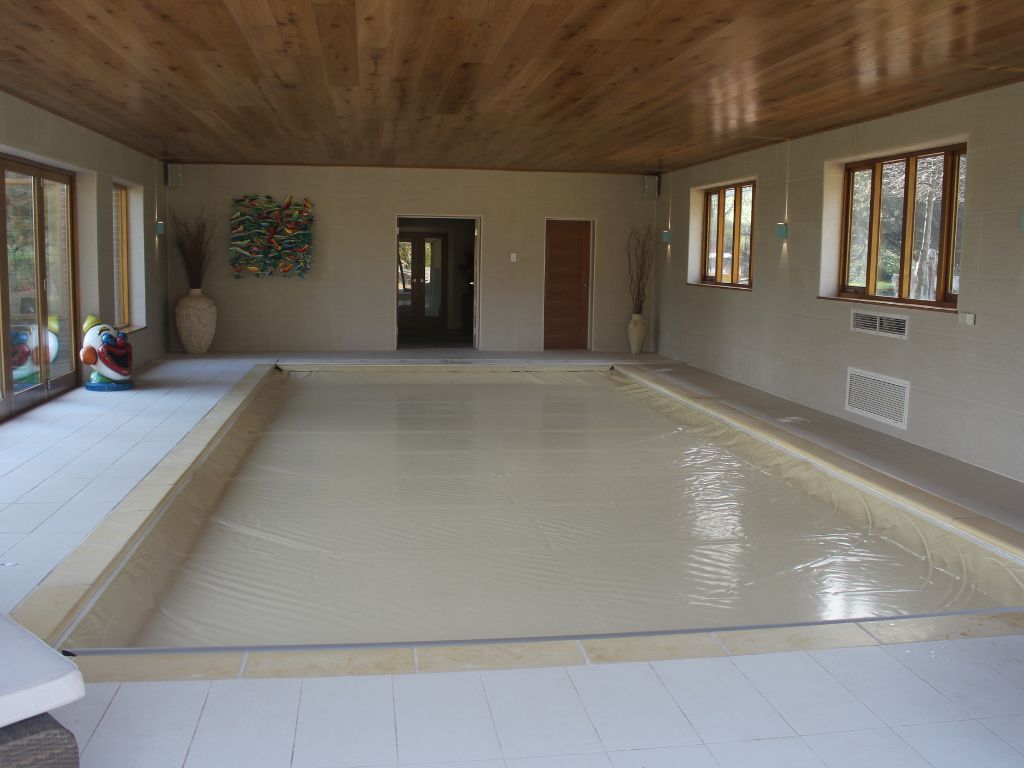
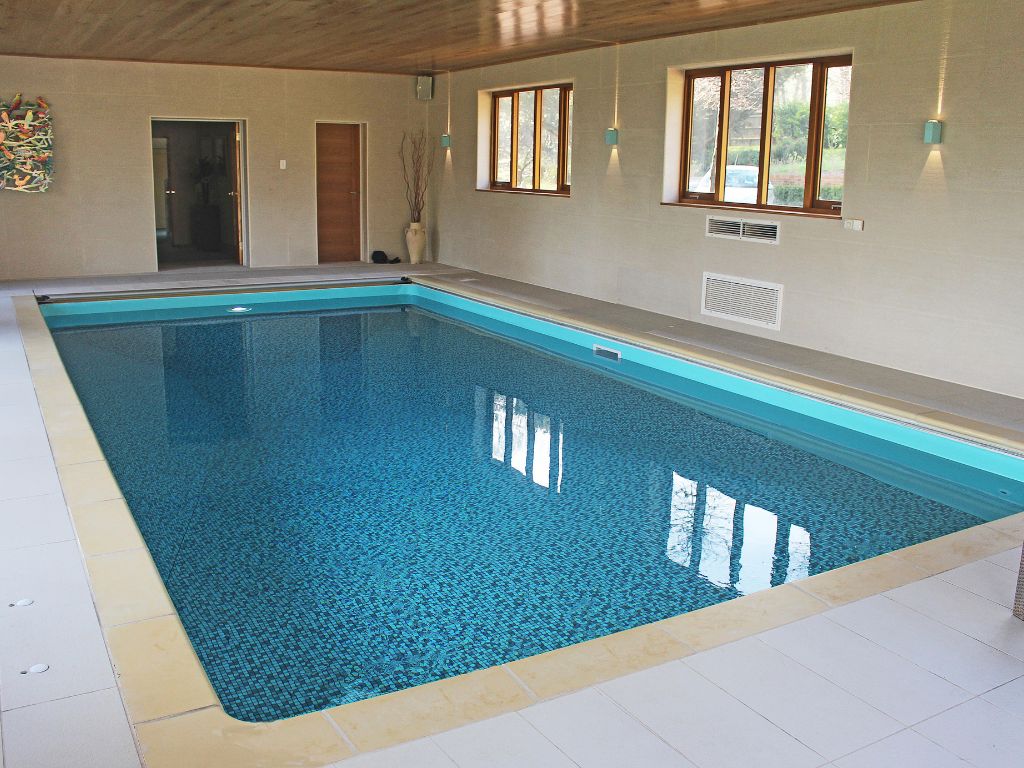
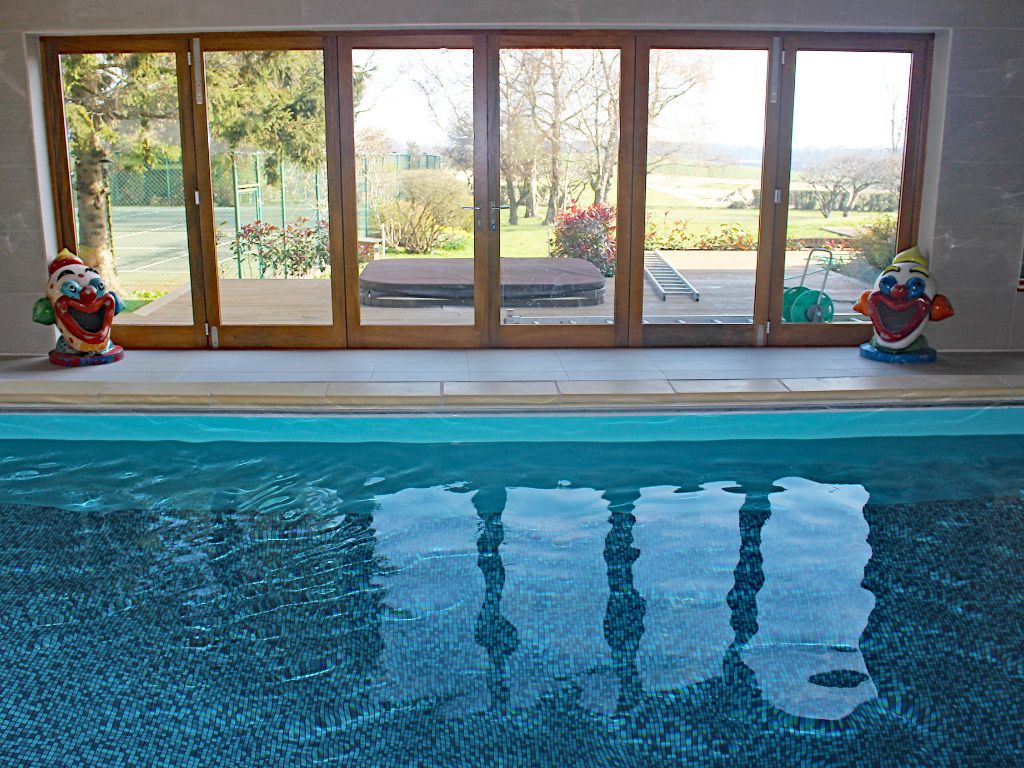
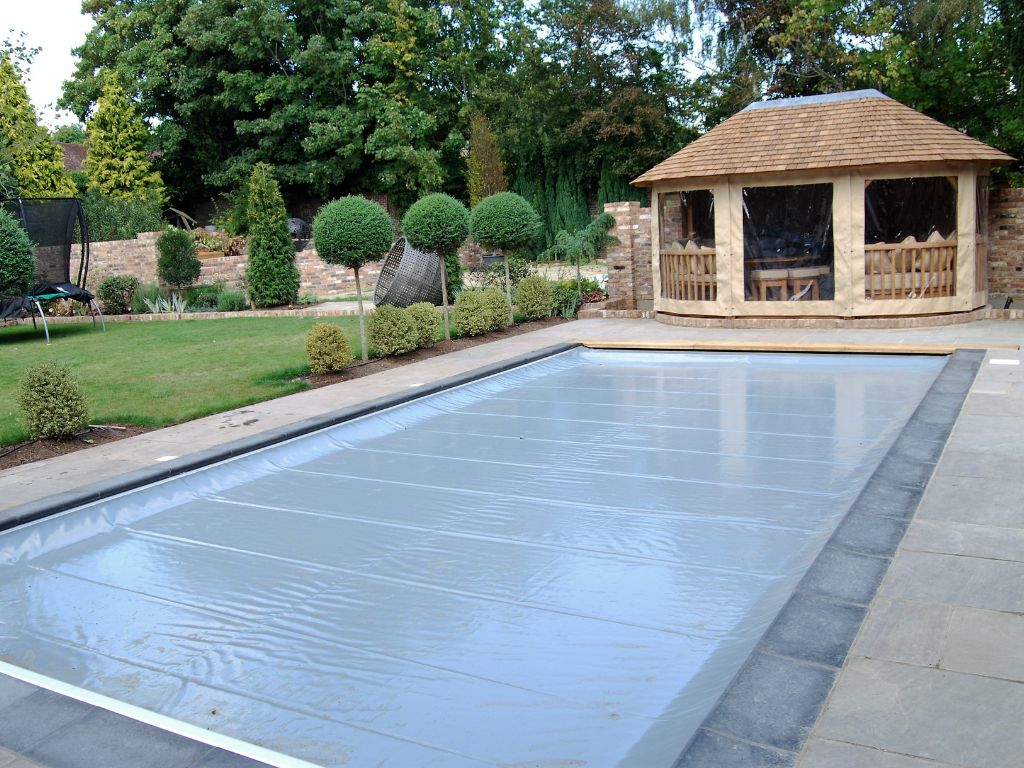
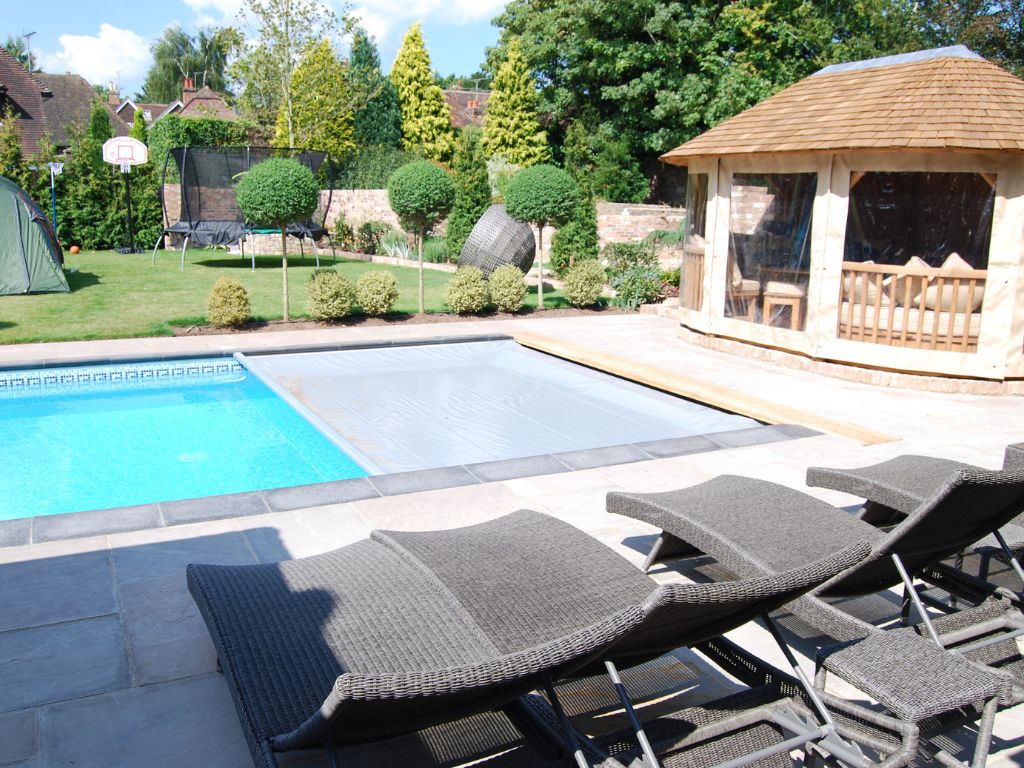
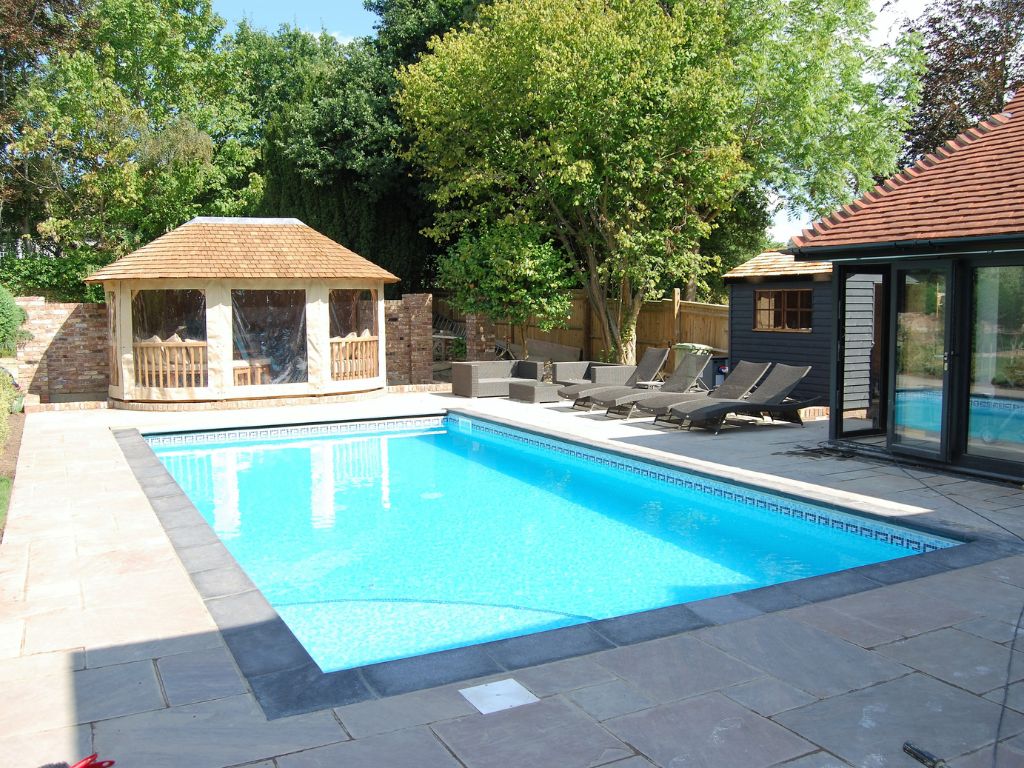
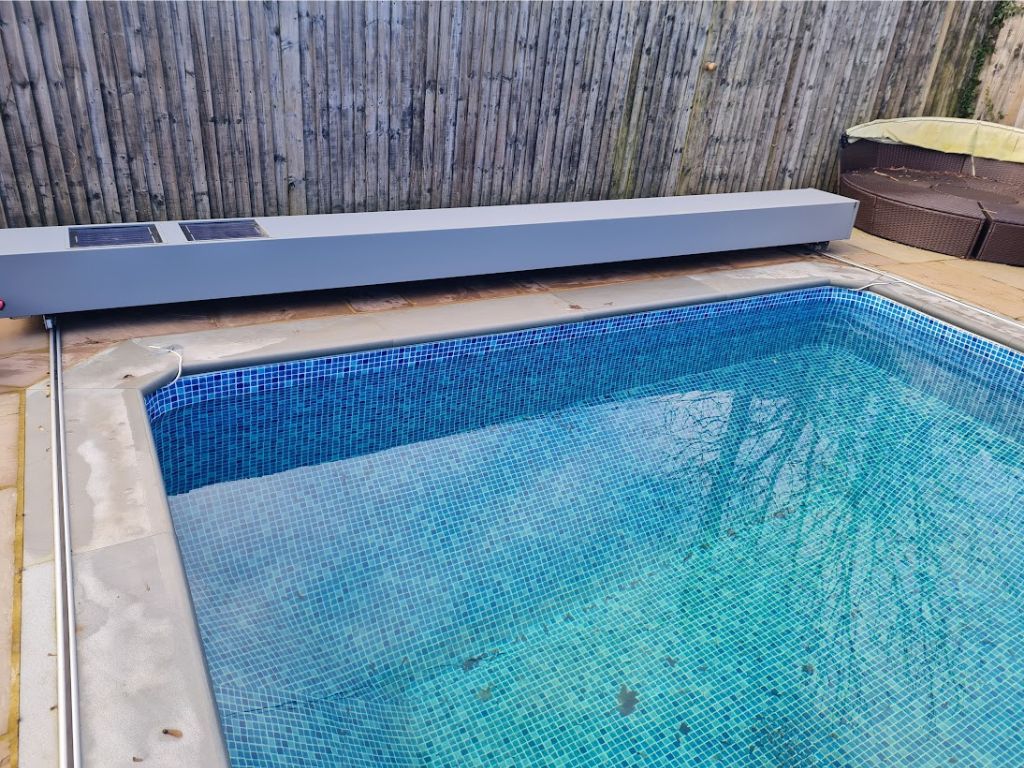
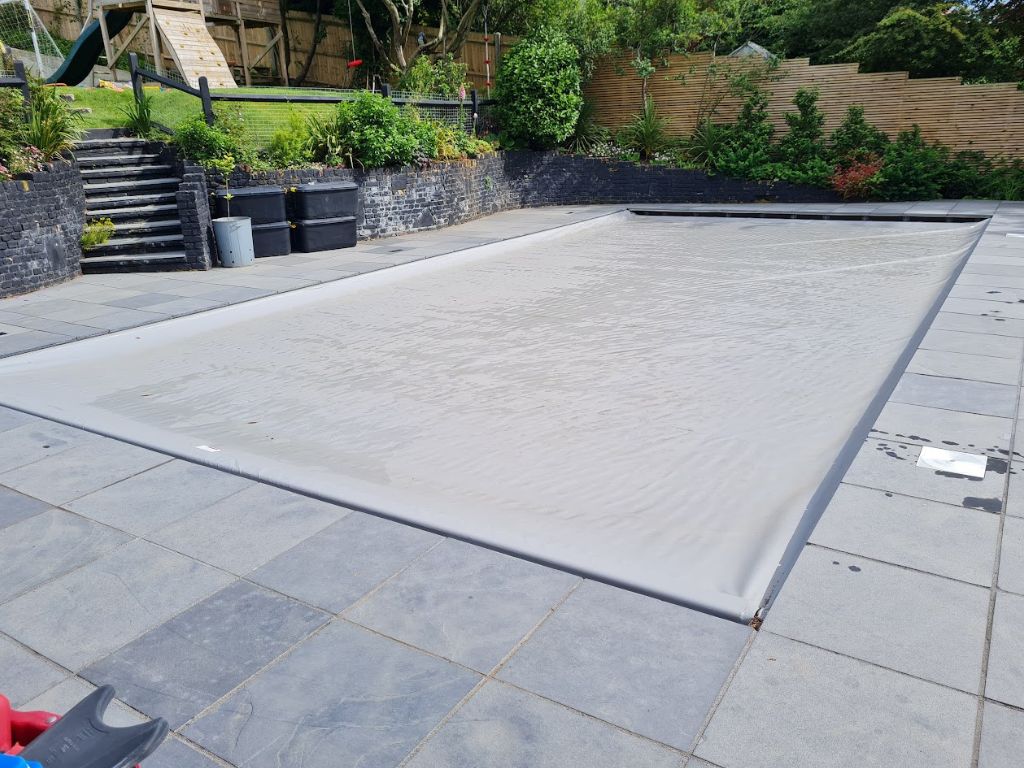

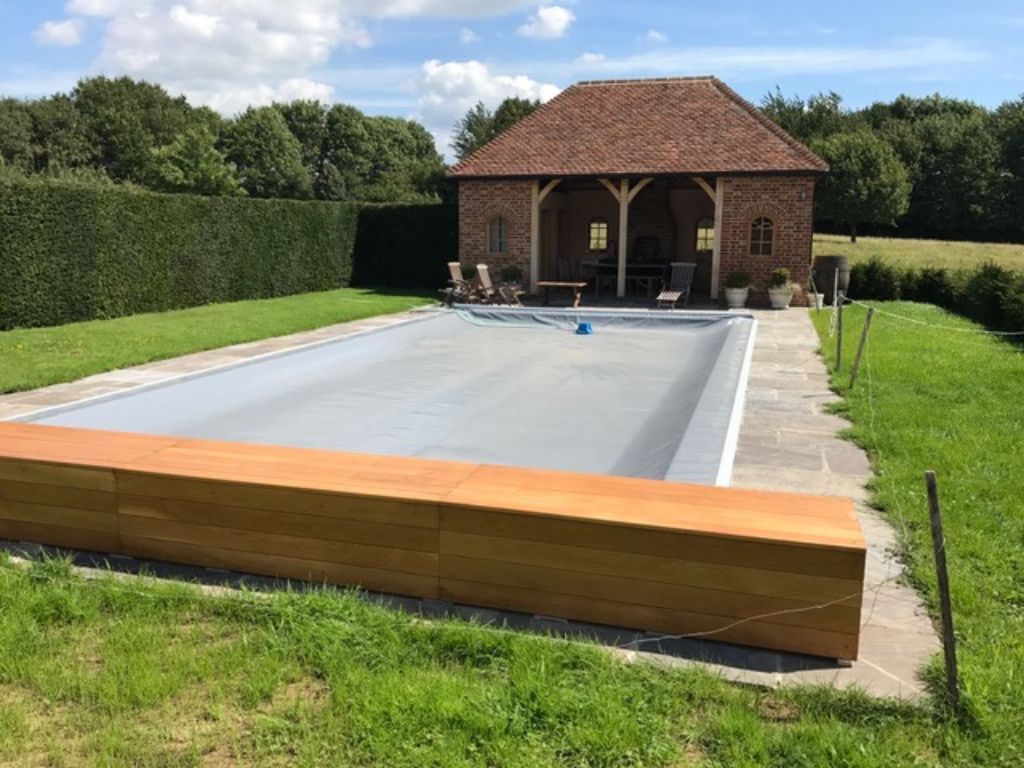
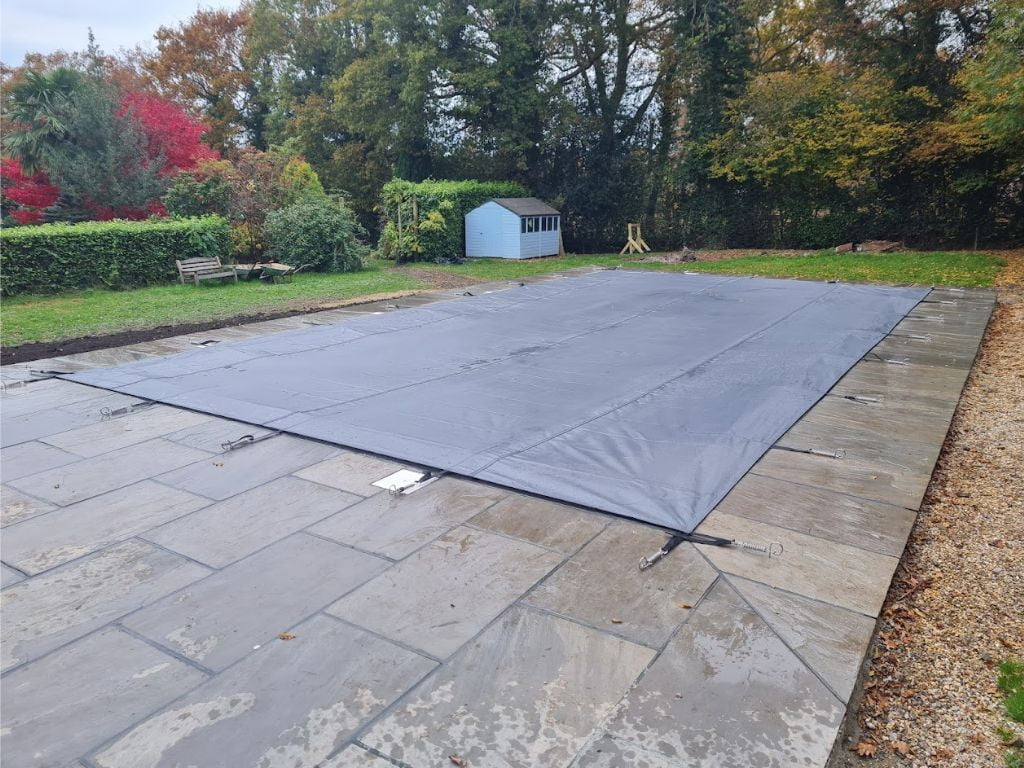
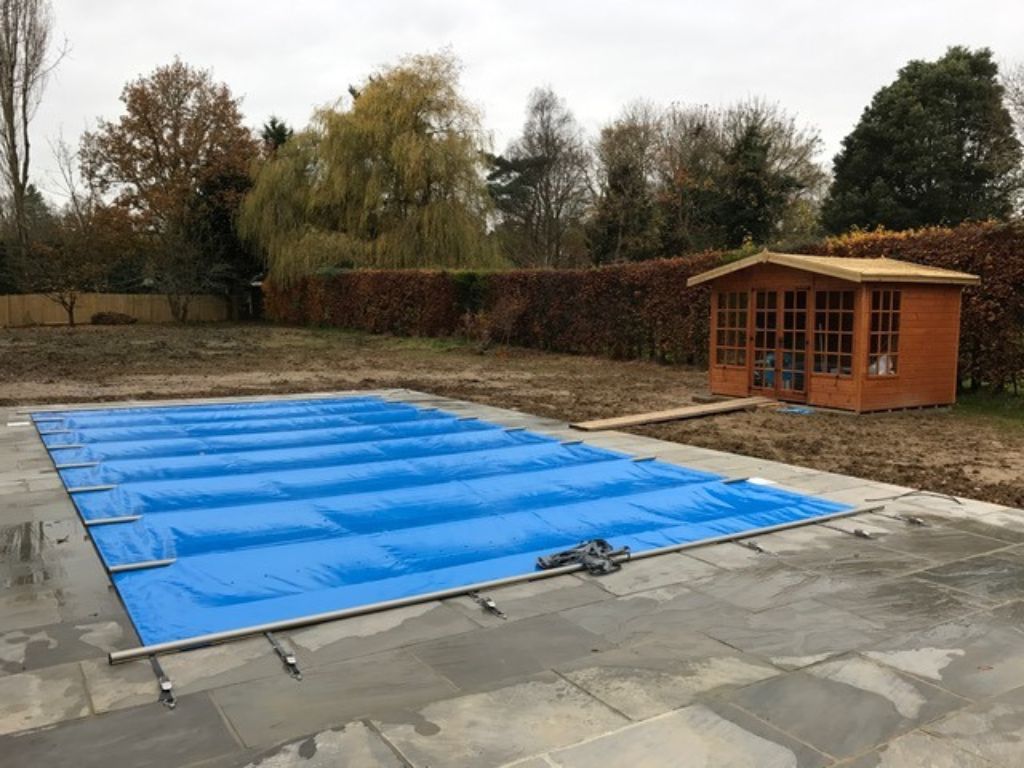
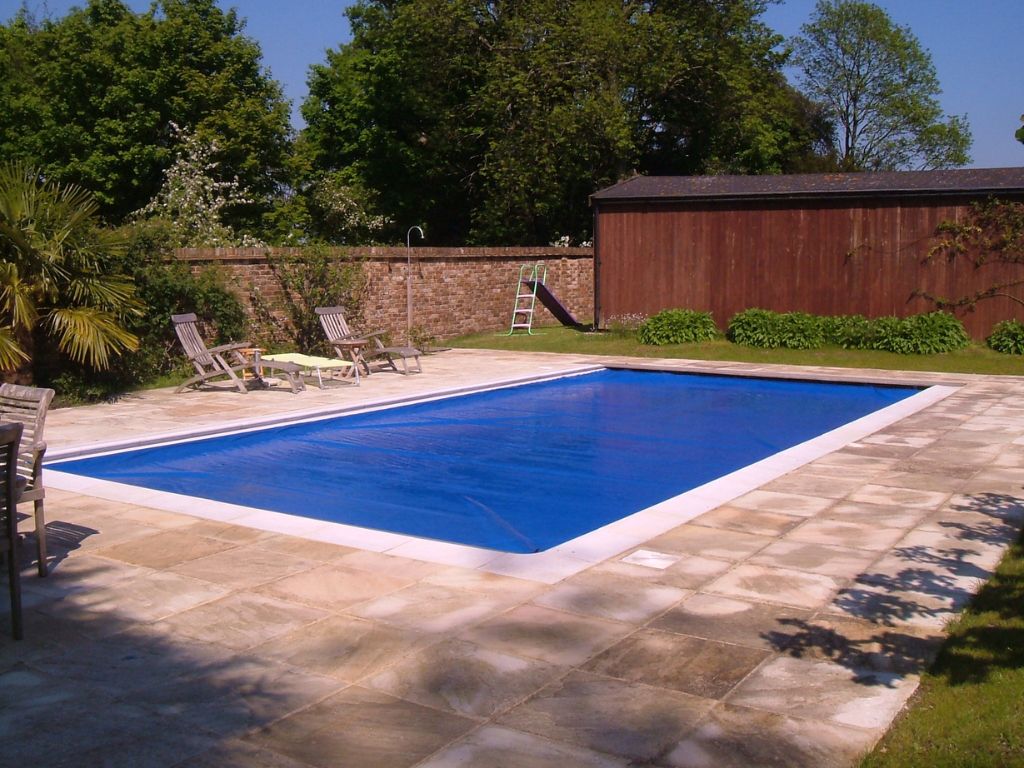
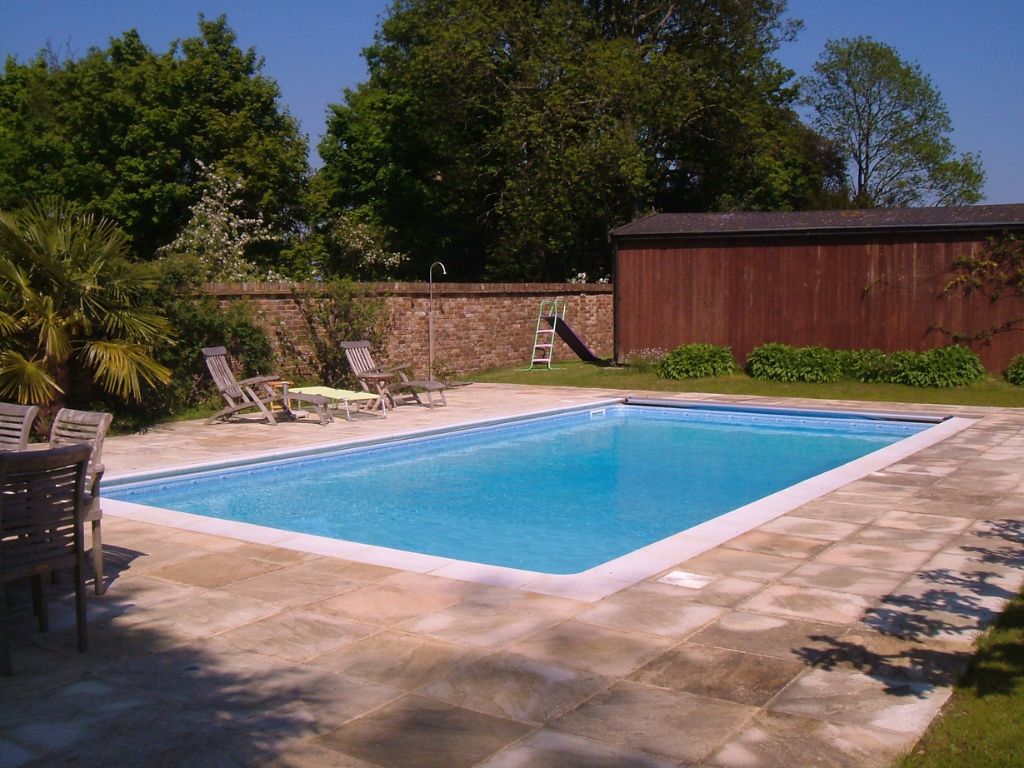
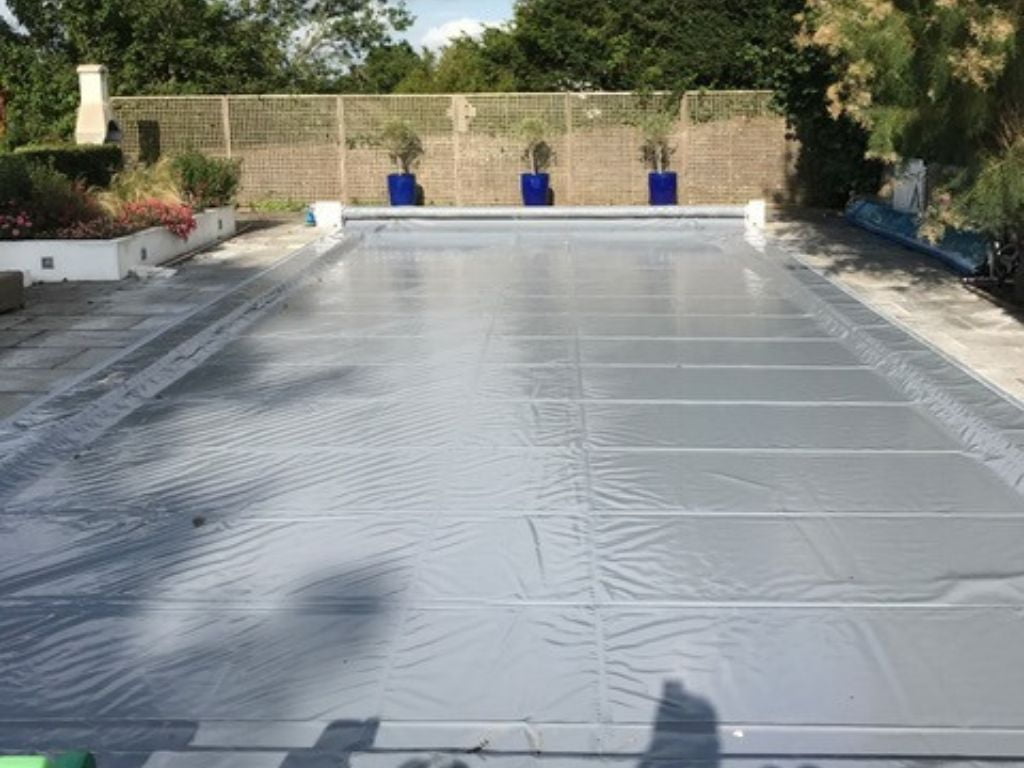
The benefits of swimming pool covers
Reduces heat loss
Swimming pools lose heat mostly by evaporation and convection. This is because water is a highly effective carrier of heat, which is principally why it is widely used as a coolant. To understand the impact of water evaporation on your swimming pool temperature, consider that it requires around 2.4MJ of energy to evaporate 1 kg of water at 25C. Over an average year for a pool that is 8m x 4m, 160 litres (which is 160kg) of water will evaporate in a day, averaging over 20,000 litres in a year. That takes about 48,500MJ of energy out of your pool over a year – which equates to 13.5MWh of electricity, or over £2,000!
Pool covers reduce evaporation from indoor pools and outdoor pools. It is estimated that up to 50% to 70% of the pool heating costs can be reduced with an effective cover. So you could save between £1,000 and £1,500 per year just on the heating costs.
Improves safety
This is an obvious one—when the pool is not in use, it is important to ensure that there is no risk of children, pets, or wildlife falling into it. Obviously, this will be a greater consideration for some pool owners than others—if you have an indoor pool with no children and no pets, then the risk is far lower than for an outdoor pool at a home with animals and young children.
Obviously, in-ground swimming pools present the greatest risk, but above-ground pools also present a hazard, and consideration should be given to this when selecting a pool cover. The only truly safe cover type is a safety cover, and if this is a concern for you, then you should not consider other cover types.
Less cleaning
Having a physical barrier over your pool will reduce the opportunities for debris, such as leaves and dirt, to enter the pool. Debris that does get into the pool will start to break down and will cause particle pollution in the water and may upset the chemical balance, leading to cloudiness or other problems that can be expensive to treat and temporarily put the pool out of use. In this case, prevention is definitely better than cure, and a pool cover can ensure you get the maximum use from your pool with less frequent pool cleaning.
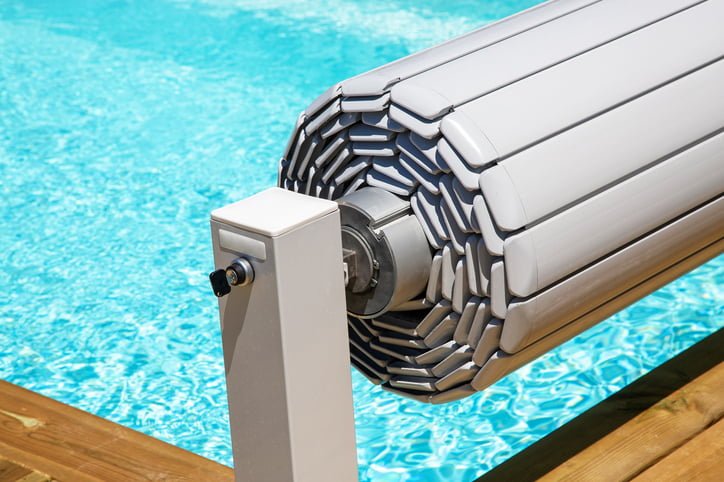
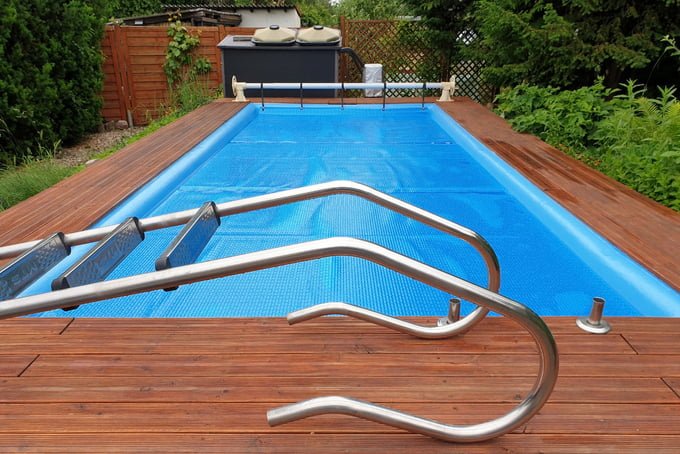
Block UV rays
One thing that will lower or reduce your chlorine level is sunlight or UV rays. By covering a swimming pool when it is not in use, the UV rays cannot burn off the chlorine, so it will last much longer. Venetian and safety covers are particularly effective at this.
Pool cover lifespan
The swimming pool cover itself is exposed to a variety of factors that will cause degradation and damage over its lifetime, principally UV sunlight for an outdoor pool (and if you’ve ever left plastic items out in the sun for an extended period, you will be familiar with the way in which UV light makes plastics age, fade and become more brittle and prone to tearing) and the pool chemicals in the water. You can minimise the impact of the pool chemicals by ensuring that your pool is well maintained and balanced, but you should keep your pool cover removed when chlorine shocking the pool (until chlorine levels return to normal) to avoid corrosion of the cover. Of course, a compounding factor is the heat accelerates these processes, so a warmer pool will increase the rate of deterioration.
Typically, a solar pool cover may last 3-5 years, whilst the vinyl in a pool safety cover may last 5-10 years, and a rolling deck will last a lot longer, provided it is properly maintained. As with many things, a cheap pool cover may be a false economy if it deteriorates faster than a more expensive one, so it is best to get advice on what is right for your swimming pool.
Also, bear in mind that any cover will prevent chlorine from evaporating from your pool as a gas, which means the concentration in the water will remain higher whilst the cover is closed – meaning you will need to ensure your chlorinator is properly set to allow for this (typically 30%-60% lower depending on the cover type and ambient conditions). As with all things related to swimming pools, if you are in doubt, consult an expert to ensure this is set correctly.
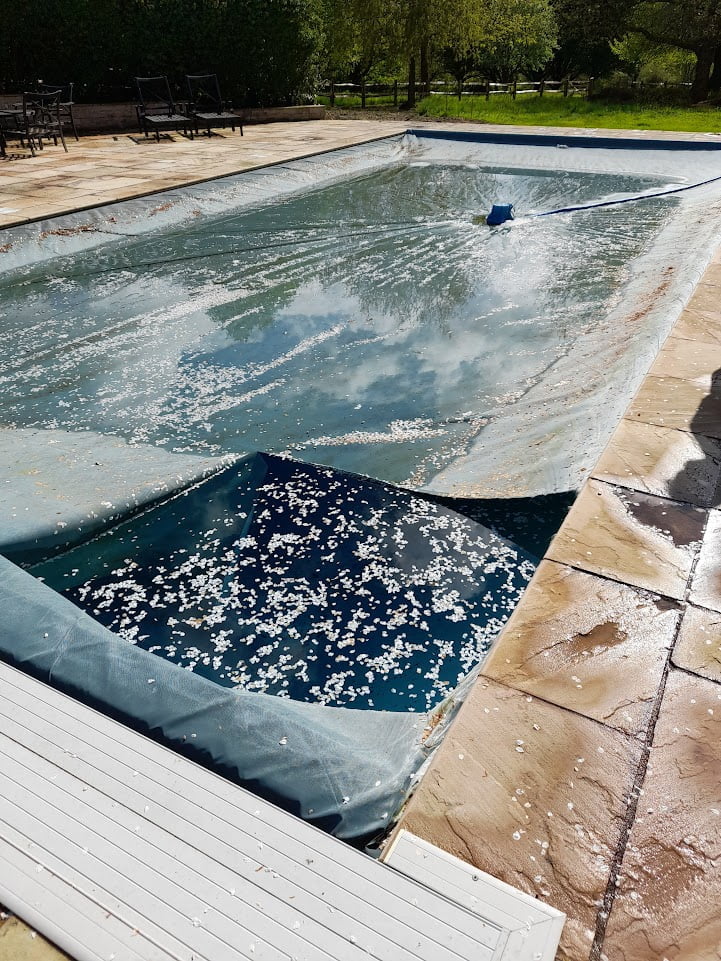
Get in touch about your swimming pool cover
Don’t leave your pool vulnerable to the elements and waste; ensure it stays pristine by contacting our team today to find the perfect pool cover solution for your needs. Get in touch now for a free quote and consultation.
